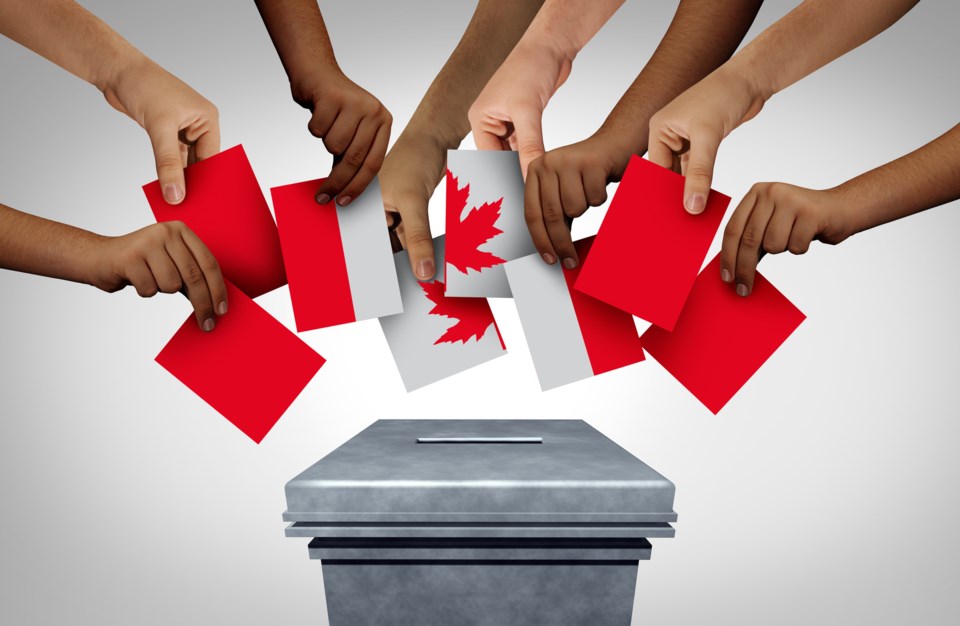Voters and anyone interested in community politics should circle Wednesday, Nov. 13, on their calendars because that’s when this year’s municipal and school board elections take place across Saskatchewan.
City hall has also circled this date and has begun preparing for this undertaking.
During its Feb. 12 regular meeting, city council voted unanimously to appoint assistant city clerk Dawn Lugrin as the returning officer, with the authority to act as the associate returning officer for Prairie South and Holy Trinity Catholic school divisions.
Furthermore, remuneration per day for the poll supervisor, ballot receiving officer and ballot issuing officer — who face a 13-hour election day — will be $270, $255 and $250, respectively, with each also paid $50 to attend mandatory training.
Also, election officials will continue registering voters at advance polls or on election day instead of creating a list of electors’ names. Voters can use mail-in ballots if they can’t attend in person.
Moreover, city hall will list candidates’ names in alphabetical order but will not list their occupations and will not ask for criminal record checks. Meanwhile, mayoral and councillor candidates must pay a deposit of $100 each.
There will be free transit on election day; city hall expects this to cost $1,600.
The polling locations will include the Exhibition Association’s Golden Nugget Centre for voters north of Thatcher Drive and west of 11th Avenue Northwest; Cosmo Seniors’ Centre for voters in northeast Moose Jaw; Minto United Church for northern residents not included in the first two locations; and Church of Our Lady for South Hill voters.
Election-day polls will run from 9 a.m. to 8 p.m., while advance polls will occur on Tuesday, Oct. 29 and Wednesday, Oct. 30 from 12 to 6 p.m., Saturday, Nov. 2 from 10 a.m. to 6 p.m., and Monday, Nov. 4, Tuesday, Nov. 5 and Thursday, Nov. 7 from 12 to 6 p.m.
A poll at Dr. F.H. Wigmore Regional Hospital will run for 1.5 hours, while polls at care homes will be kept open for a minimum of one hour.
City hall expects the election to cost roughly $81,248. The city and school divisions usually split the costs, but if acclamations occur for school ballots, the city’s share increases accordingly.
City hall will call for nominations starting Tuesday, Sept. 24, with the nomination deadline on Wednesday, Oct. 9.
Changes to provincial legislation
A council report explained that the provincial government implemented changes to The Local Government Election Act on Jan. 1, such as:
- Giving the returning officer the ability to establish polling places in hospitals or care homes and allowing non-residents in those medical places and caregivers and staff members to vote there
- Giving the returning officer emergency powers to postpone an election in an emergency temporarily or if inclement weather is forecasted; with the latter, the officer would have to decide on an alternate day sometime before or after Nov. 13
“The focus of election planning activity will be to provide optimum opportunities to the citizens of Moose Jaw to exercise their democratic rights,” the report added.
Mail-in ballots
City council has allowed mail-in ballots since June 2012 for voters — students, snowbirds, military personnel and ill patients — absent during advance poll and election day, the report said. Such ballots have been used for the last three general elections and two byelections; ballot requests must be made by August.
Wittke told council that before the pandemic, her office received roughly 10 mail-in ballots; during the 2021 byelection, her office received 500. Therefore, staff intend to promote mail-in ballots again for this election.
“It’s gaining as we educate the public,” she added.
Referendum costs
If a referendum occurred during the election, it’s unlikely that it would cost extra since it would be part of the voting process, similar to 2012 and 2016 on the Multiplex and cast iron projects, respectively, said Wittke.
However, there would be additional costs if the referendum occurred separately.
Occupation, criminal history, deposit fees
The city’s Election Bylaw does not require a candidate’s occupation to be listed, while updated legislation lists occupation as optional on nomination papers and ballots, the report said. The document also noted that “there is a grey area” with some definitions of occupation, which is why that feature won’t be listed.
Meanwhile, criminal record checks are pointless since it’s unclear what benefit they would provide in collecting this information, the document continued. The check would only say that a candidate “may” have a criminal record but not provide details or offence history.
Vote-counting machines
The city leased poll scanning and tabulator equipment from Election Systems and Software (ES&S) for the 2020 general election and 2021 byelection, with these new machines able to process both sides of an 11-inch ballot in under six seconds, the report added.
The cost to lease this equipment this year is $11,160.
The next regular council meeting is Monday, Feb. 26.




